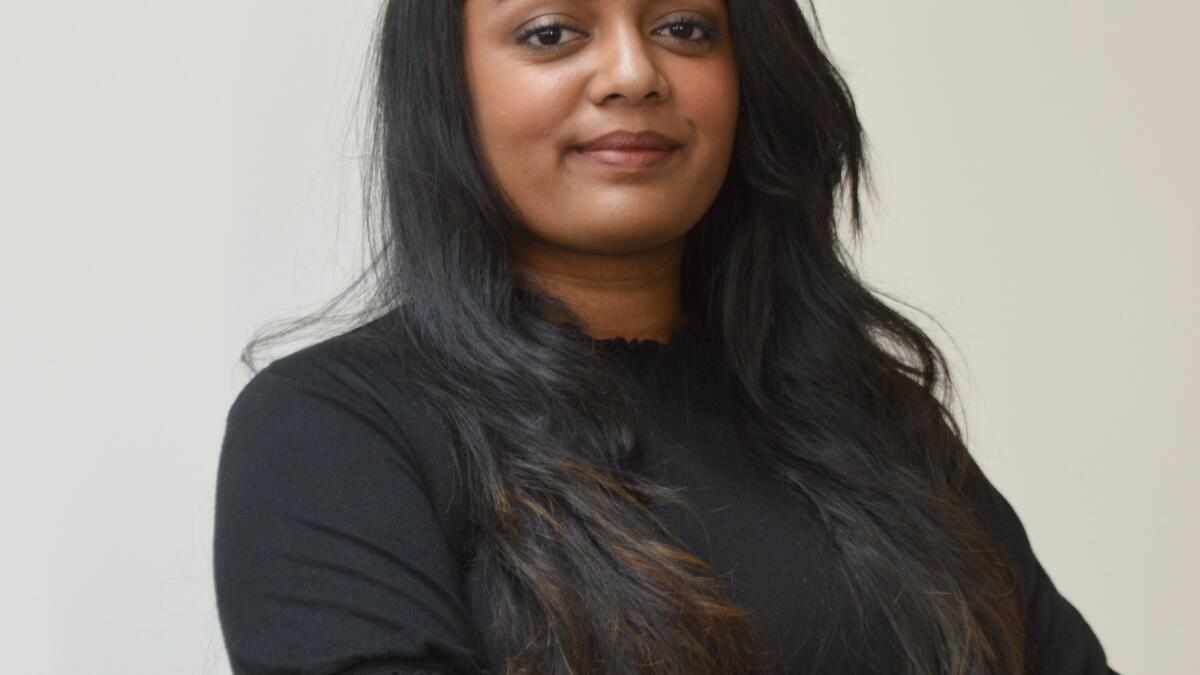Engineering grad finds her career path with program that combines technology and entrepreneurship

Pooja Addla Hari graduates this December with a bachelor's degree in technological entrepreneurship and management, plus a minor in statistics through the W. P. Carey School of Business and a certificate in cross-sector leadership from Watts College of Public Service and Community Solutions.
Editor's note: This story is part of a series of profiles of notable fall 2020 graduates.
Pooja Addla Hari found her calling her very first week at Arizona State University.
She was attending the inauguration ceremony of the Generator Labs in 2016 when one of the leaders present talked about the new Technological Entrepreneurship and Management (TEM) program in the Ira A. Fulton Schools of Engineering. The program prepares students to launch technology-based ventures and tackle social and corporate issues to impact the world around them.
"Instantly, I felt so heard and understood and I knew I belonged in that program because of its interdisciplinary format, top-notch faculty and resources," said Hari, who hails from Chennai, India. "I switched to it within two weeks, after discussing it with my trusted advisers."
This December, she is receiving her bachelor's degree in TEM, plus a minor in statistics through the W. P. Carey School of Business and a certificate in cross-sector leadership from Watts College of Public Service and Community Solutions. During her time at ASU, Hari received the New American University Scholarship, Public Service Academy Award and the Sustainability Champions Award.
Students in the TEM program learn a range of skills needed to develop new products, services and business models, as well as whole new industries. For Hari, it has already led to a position with a startup that uses technology to help people find better jobs and improve their financial situation. Learn more about her in the Q&A below.
Question: What’s something you learned while at ASU — in the classroom or otherwise — that surprised you or changed your perspective?
Answer: The list of everything I’ve learned at ASU is endless. However, for the purposes of this (story), I’m going to share two examples. Prior to coming to ASU, I thought that “sustainability” was a field/concept limited to the environment. I didn’t understand the multidimensional, interdisciplinary, cross-sector nature of it. Here I learned that it includes social and economic aspects as well, learned about the UN Sustainable Development Goals, and got involved in a variety of coursework and outside-of-class projects. Secondly, I didn’t understand the depths of gender and sexuality until I came here and learned from several amazing folks, which helped me introspect, check my biases and understand my own sexuality.
Q: Why did you choose ASU?
A: Three things:
- ASU’s charter — “Measured not by whom it excludes, but by whom it includes and how they succeed.”
- ASU’s Entrepreneurship + Innovation resources and community.
- ASU’s focus on sustainability and social innovation.
Q: Which professor taught you the most important lesson while at ASU?
A: Dr. Steve T. Cho taught me important lessons in all spheres of life — academic, professional, technical, personal, philosophical … you name it. He is one of the biggest reasons for my growth and successes in the last few years.
Q: What’s the best piece of advice you’d give to those still in school?
A: Adapting a quote from Harry Potter, “Help shall always be given at ASU to those who ask for it,” and oftentimes, even for those who don’t because ASU is all about inclusivity — we try to reach out to you and help before it’s too late. Nevertheless, asking for help is a great sign of strength and a valuable skill to have. If you don’t ask, the answer is always no. Don’t be afraid to voice your opinions, thoughts and ideas because there is always a place for you and what you have to offer here.
Q: What was your favorite spot on campus, whether for studying, meeting friends or just thinking about life?
A: Changemaker Central (Tempe and Polytechnic campuses), Generator Labs @ ECG, Hayden Library, Noble Library and Armstrong Hall's study spaces.
Q: What are your plans after graduation?
A: I’m the product and customer success manager for Enfuego Technologies, a Phoenix-based high-growth startup that streamlines the job application process by instantly generating resumes, customized to match any job description, using artificial intelligence and machine learning. We recently secured half a million dollars in funding from Schmidt Futures as part of the Alliance for the American Dream competition to achieve the challenge goal of increasing by 10% the net income of 10,000 middle-class Arizonans by 2022.
Q: If someone gave you $40 million to solve one problem on our planet, what would you tackle?
A: I would create locally focused, but globally available, upskilling and reskilling programs to help the unemployed and underemployed find quality, meaningful, high-growth work. This would not just help them increase their incomes, which would consequently increase their quality of life, health, leisure spending, etc., but also help them reclaim their sense of independence and purpose.
More Science and technology

ASU postdoctoral researcher leads initiative to support graduate student mental health
Olivia Davis had firsthand experience with anxiety and OCD before she entered grad school. Then, during the pandemic and as a…

ASU graduate student researching interplay between family dynamics, ADHD
The symptoms of attention deficit hyperactivity disorder (ADHD) — which include daydreaming, making careless mistakes or taking…

Will this antibiotic work? ASU scientists develop rapid bacterial tests
Bacteria multiply at an astonishing rate, sometimes doubling in number in under four minutes. Imagine a doctor faced with a…